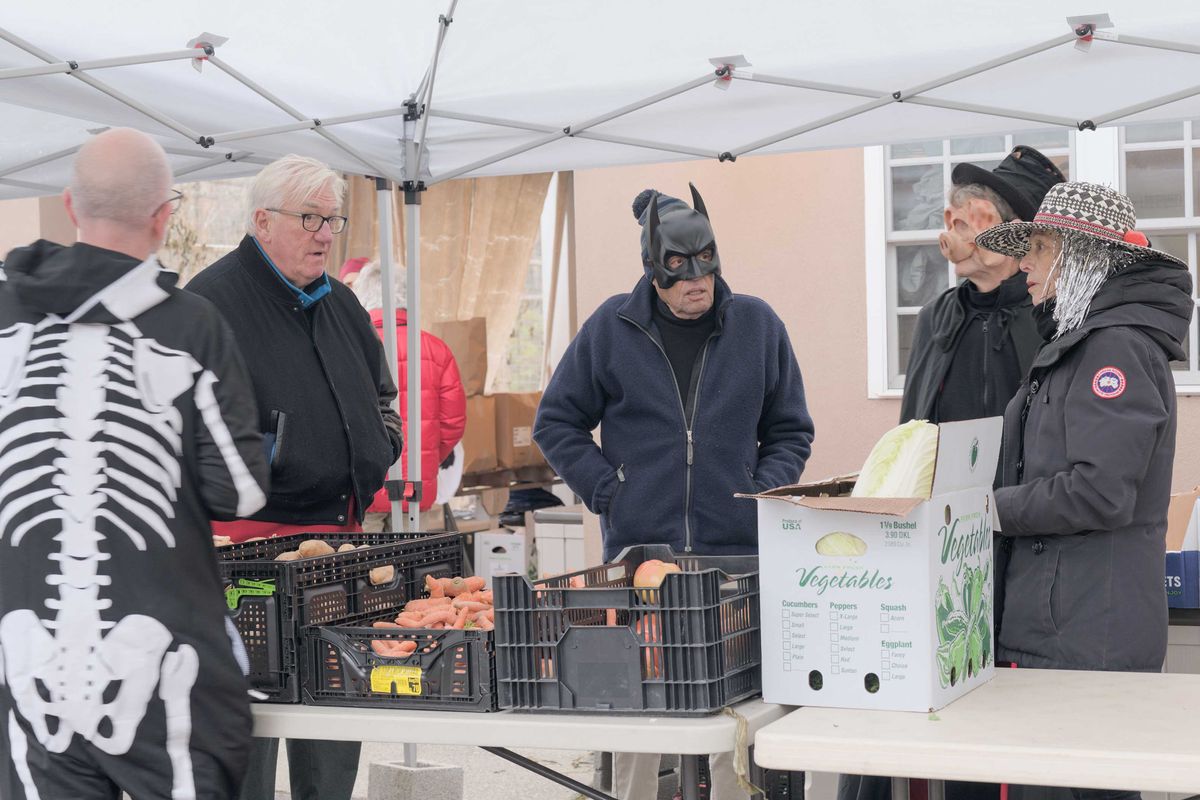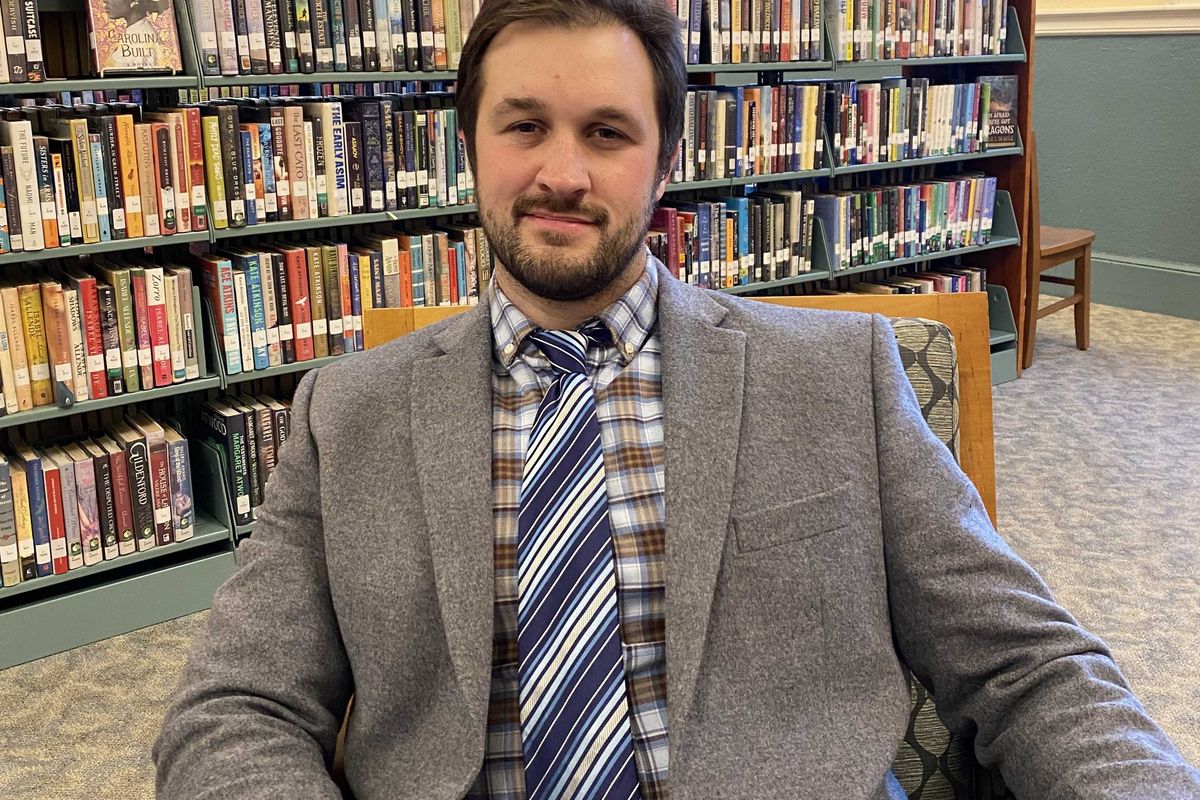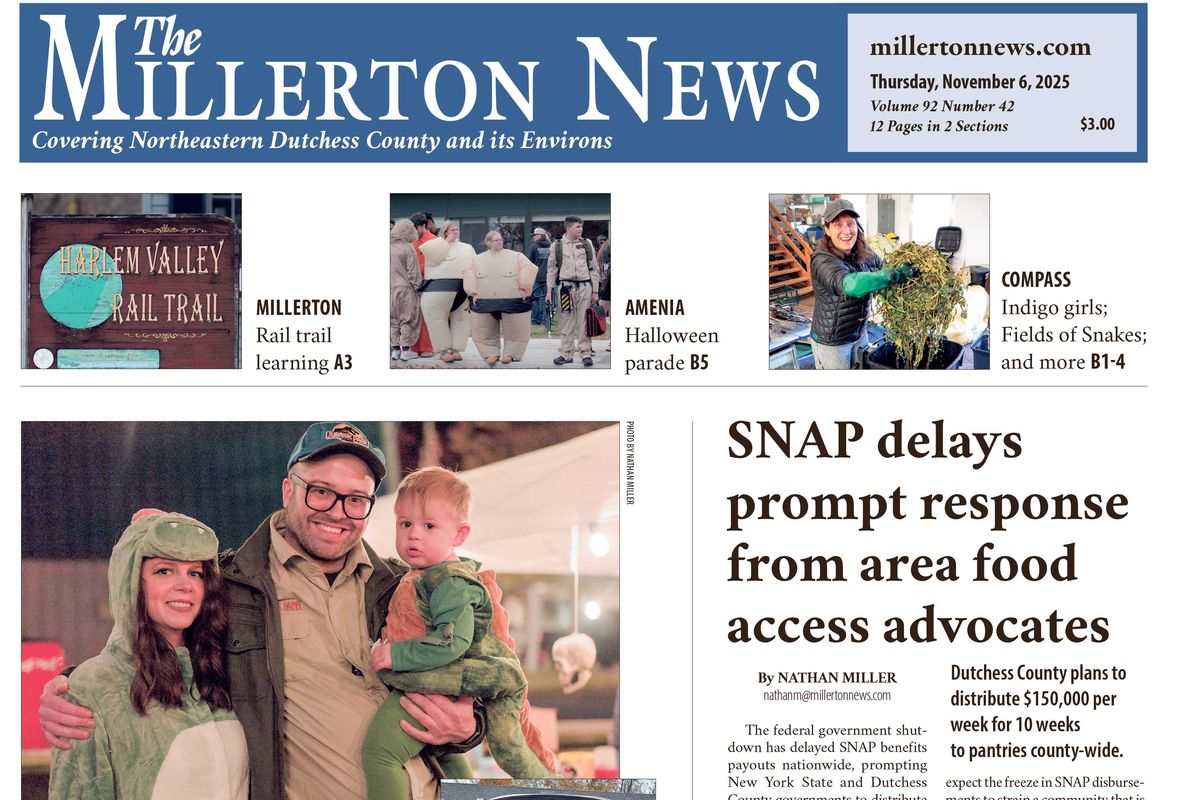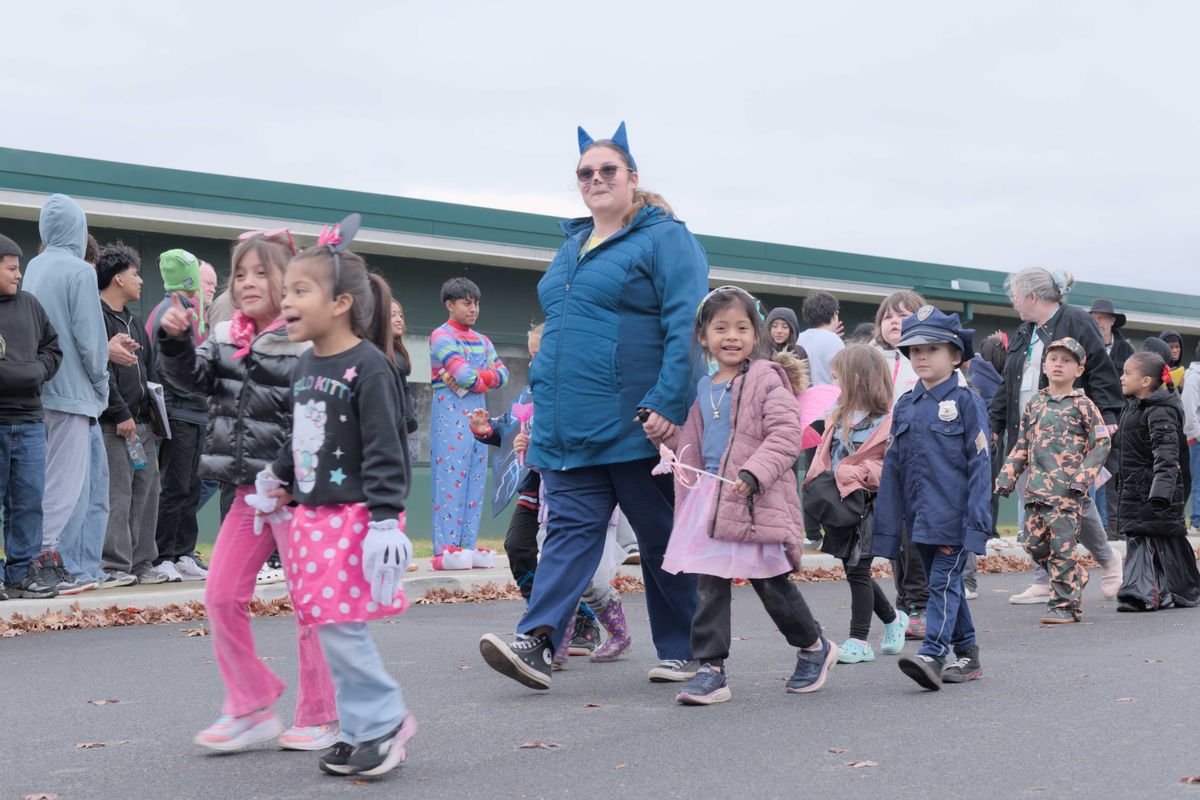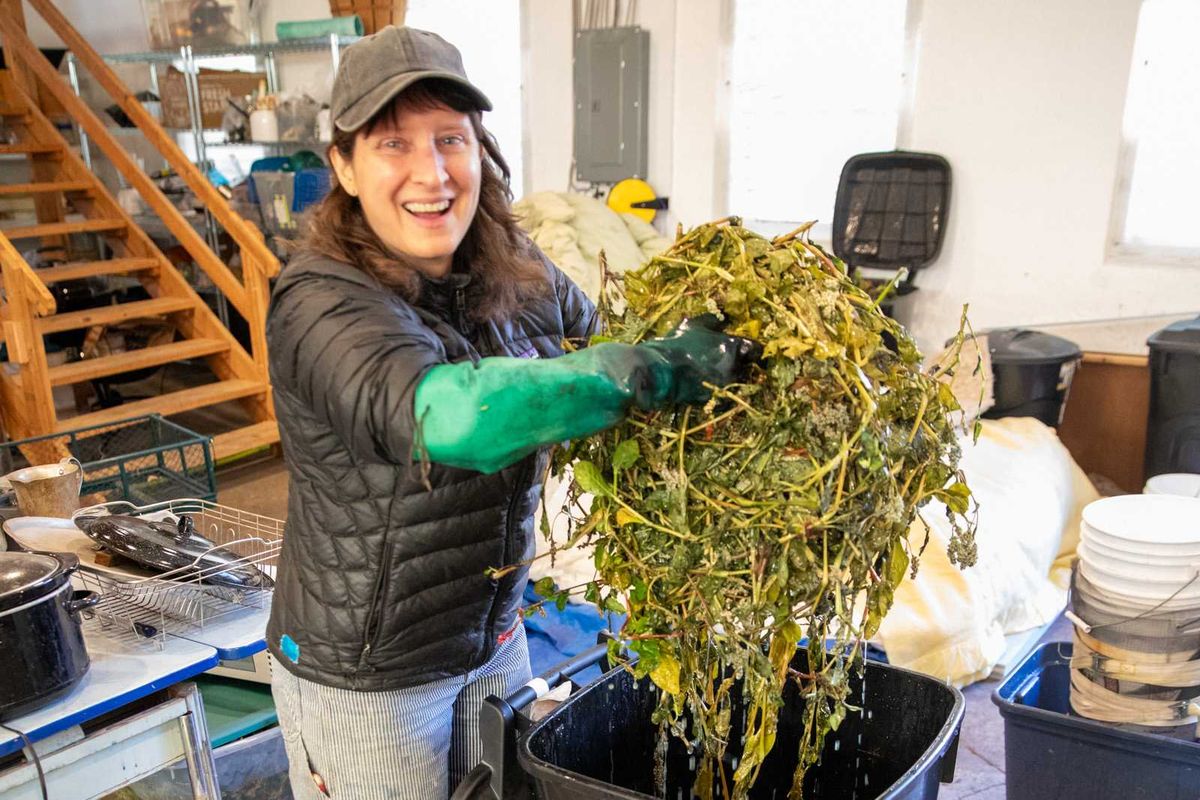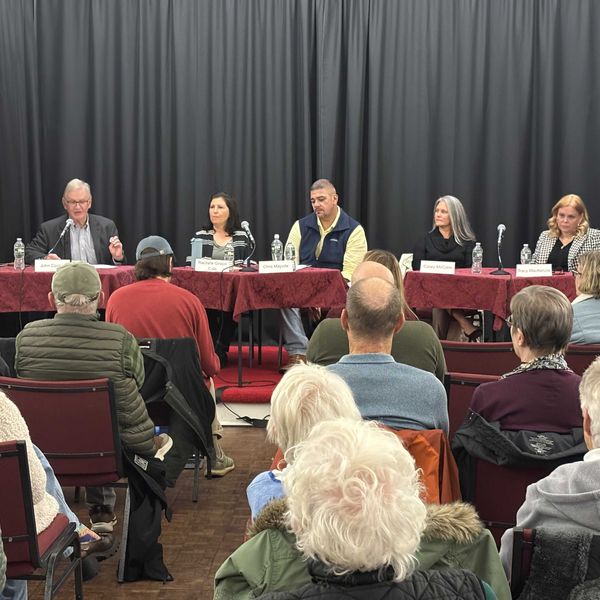Latest News
Costumed paraders
Nov 05, 2025
Nathan Miller
Webutuck Elementary students ushered in Halloween with a colorful parade around the school parking lot on Friday, Oct. 31, delighting middle and high school students who lined the sidewalk to hand out candy.
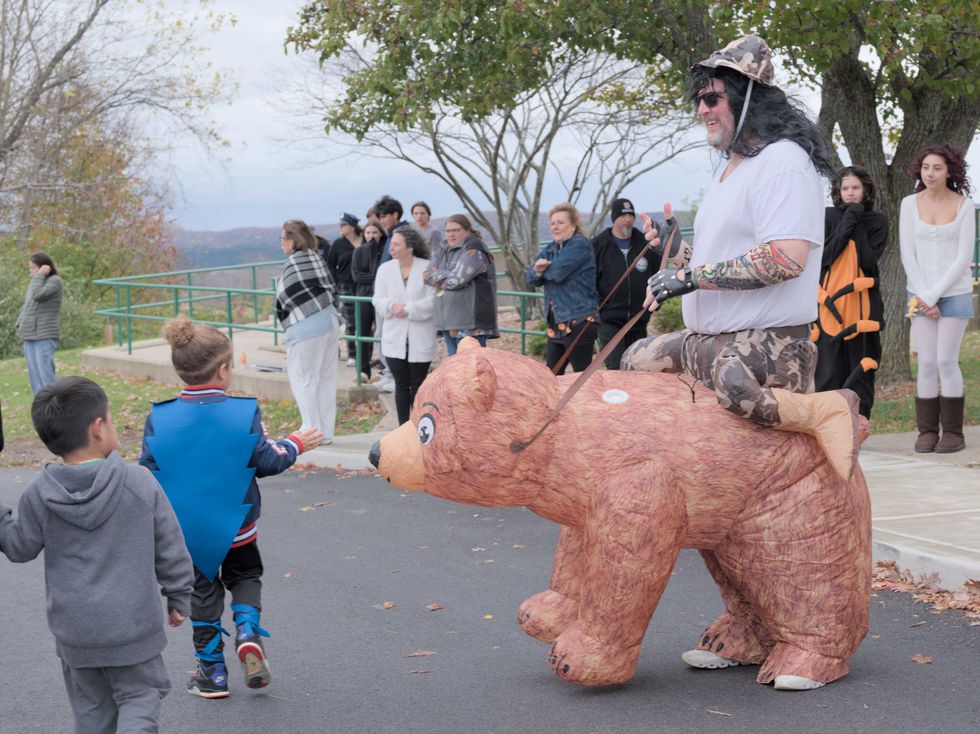
Legal Notices - November 6, 2025
Nov 05, 2025
Legal Notice
Brevi Properties LLC
Brevi Properties LLC, a domestic LLC, filed with the SSNY on 8/27/2025. SSNY is designated as agent upon whom process against the LLC may be served. SSNY shall mail process to 16 Peaceable Way Dover Plains, NY 12522. Purpose: Real estate management. Section 203 of the Limited Liability Company Law.
10-09-25
10-16-25
10-23-25
10-30-25
11-06-25
11-13-25
LEGAL NOTICE ANNUAL ELECTION OF THE Pine Plains
Fire District
On December 9, 2025
NOTICE IS HEREBY GIVEN that the Annual Election of the Pine Plains Fire District will take place on December 9, 2025 between the hours of 6:00 p.m. and 9:00 p.m. at the Pine Plains Fire House located at 7 Lake Road, Pine Plains, New York 12567 for the purpose of electing one Commissioner: one Commissioner for a five (5) year term, commencing January 1, 2026 and ending December 31, 2030. Only residents registered to vote with the Dutchess County Board of Elections on or before November 16, 2025 and have resided in the Pine Plains Fire District for at least thirty days prior to the election, shall be eligible to vote.
Candidates for District Office shall file their names and the position they are seeking with the Secretary of the Pine Plains Fire District, Heather Lamont, P.O. Box 860, Pine Plains, New York 12567 no later than November 19, to 2025.
November 6, 2025.
BOARD OF FIRE COMMISSIONERS
PINE PLAINS
FIRE DISTRICT
11-06-25
Legal Notice
Silent Mind Apparel, LLC, Arts. of Org. filed with the Secy. of State of NY (SSNY) on 09/09/2025. Office location: Dutchess County, NY. SSNY designated as agent of LLC upon whom process against it may be served. SSNY shall mail process to: P.O. Box 593. Purpose: any lawful act.
10-02-25
10-09-25
10-16-25
10-23-25
10-30-25
11-06-25
LEGAL NOTICE
The South Amenia Cemetery Association Annual Meeting will be held Friday, November 07, 2025 at 7:00PM at 4007 Route 22, Wassaic, NY 12592 for the election of officers and trustees and the transaction of other such business as may legally come before it.
Amiee C. Duncan, Secretary
11-06-25
NOTICE OF
ANNUAL ELECTION
Wassaic Fire District in the Town of Amenia,
Dutchess County,
New York
NOTICE IS HEREBY GIVEN, that pursuant to Section 175 of the Town Law, and other applicable statutes, an annual election of the Wassaic Fire District will be held on the 9th Day of December, 2025, at the firehouse located at 27 Firehouse Road, Wassaic, NY, between the hours of 6:00 p.m. and 9:00 p.m. for the purpose of electing the following:
ONE FIRE COMMISSIONER for a term of five (5) years commencing on January 1, 2026, and ending December 31, 2030; and
Each registered elector of the Town of Amenia who shall have resided in the Wassaic Fire District for a period of thirty days next preceding the election shall be qualified to vote at the election.
NOTICE TO CANDIDATES
Candidates must file their names with the Fire District Secretary on or before November 19, 2025. A candidate must be a resident elector of the Wassaic Fire District and registered voter in the Town of Amenia.
Dated: Wassaic, New York
November 5, 2025
BY ORDER OF THE BOARD OF FIRE COMMISSIONERS OF THE WASSAIC FIRE DISTRICT in the Town of Amenia, Dutchess County, New York.
Fire District Secretary
11-06-25
Notice of Publication
SUPREME COURT OF THE STATE OF
NEW YORK
COUNTY OF DUTCHESS
Index No. 2025-51557
FORECLOSURE SUPPLEMENTAL SUMMONS
LLACG COMMUNITY INVESTMENT FUND,
Plaintiff,
-against-
DONNA PARILLO, AS HEIR, DEVISEE, DISTRIBUTEE OF THE ESTATE OF EDWARD P. SWEENEY, DECEASED; BRENDA J. SWEENEY, AS HEIR, DEVISEE, DISTRIBUTEE OF THE ESTATE OF
EDWARD P. SWEENEY, DECEASED; DONALD E. SWEENEY AS HEIR, DEVISEE, DISTRIBUTEE
OF THE ESTATE OF EDWARD P. SWEENEY, DECEASED; EDWARD P. SWEENEY AS HEIR,
DEVISEE, DISTRIBUTEE OF THE ESTATE OF EDWARD P. SWEENEY, DECEASED; JAMES
RICHARD SWEENEY AS HEIR, DEVISEE, DISTRIBUTEE OF THE ESTATE OF EDWARD P.
SWEENEY, DECEASED; ROSEMARY SWEENEY AS HEIR, DEVISEE, DISTRIBUTEE OF THE
ESTATE OF EDWARD P. SWEENEY, DECEASED; SCOTT P. SWEENEY AS HEIR, DEVISEE,
DISTRIBUTEE OF THE ESTATE OF EDWARD P. SWEENEY, DECEASED; THOMAS SWEENEY AS
HEIR, DEVISEE, DISTRIBUTEE OF THE ESTATE OF EDWARD P. SWEENEY, DECEASED; RENEE PERRY AS HEIR, DEVISEE, DISTRIBUTEE OF THE ESTATE OF EDWARD P. SWEENEY,
DECEASED; ANY AND ALL KNOWN OR UNKNOWN HEIRS, DEVISEES, GRANTEES, ASSIGNEES, LIENORS, CREDITORS, TRUSTEES AND ALL OTHER PARTIES CLAIMING AN INTEREST BY, THROUGH, UNDER OR AGAINST THE ESTATE OF EDWARD P. SWEENEY, DECEASED; NEW
YORK STATE DEPARTMENT OF TAXATION AND FINANCE; UNITED STATES OF AMERICA ON BEHALF OF THE INTERNAL REVENUE SERVICE; “JOHN DOE #1- #50” and “MARY ROE #1- #50”, the last two names being fictitious, it being intended to name all other parties who may have some interest in or lien upon the premises described in the Complaint,
Defendants.
TO THE ABOVE-NAMED DEFENDANTS:
YOU ARE HEREBY SUMMONED and required to serve upon plaintiff’s attorney an answer to the complaint in this action within twenty days after service, or within thirty days after service is complete if the summons is not personally delivered to you within the State of New York. The United States of America, if designated as a defendant in this action, may answer or appear within sixty days of service hereof. If you fail to answer, judgment will be taken against you for the relief demanded in the complaint.
Trial is desired in the County of Dutchess. The basis of venue designated above is that the real property that is the subject matter of this action is located in the County of Dutchess.
NOTICE
YOU ARE IN DANGER OF LOSING YOUR HOME.
If you do not respond to this Summons and Complaint by serving a copy of the answer on the attorney for the mortgage company who filed this foreclosure proceeding against you and filing the answer with the court, a default judgment may be entered and you can lose your home.
Speak to an attorney or go to the court where your case is pending for further information on how to answer the Summons and protect your property. Sending a payment to your mortgage company will not stop this foreclosure action.
YOU MUST RESPOND BY SERVING A COPY OF THE ANSWER ON THE ATTORNEY FOR
THE. PLAINTIFF (MORTGAGE COMPANY) AND FILING THE ANSWER WITH THE COURT.
Dated: October 14, 2025
MCMICHAEL TAYLOR GRAY, LLC
By: s/ Patricia Pirri, Esq.
Attorneys for Plaintiff
3550 Engineering Drive, Suite 260
Peachtree Corners, GA 30092
(404)474-7149
10-23-25
10-30-25
11-06-25
11-13-25
Keep ReadingShow less
Classifieds - November 6, 2025
Nov 05, 2025
Help Wanted
Weatogue Stables has an opening: for a full time team member. Experienced and reliable please! Must be available weekends. Housing a possibility for the right candidate. Contact Bobbi at 860-307-8531.
Services Offered
Deluxe Professional Housecleaning: Experience the peace of a flawlessly maintained home. For premium, detail-oriented cleaning, call Dilma Kaufman at 860-491-4622. Excellent references. Discreet, meticulous, trustworthy, and reliable. 20 years of experience cleaning high-end homes.
Hector Pacay Service: House Remodeling, Landscaping, Lawn mowing, Garden mulch, Painting, Gutters, Pruning, Stump Grinding, Chipping, Tree work, Brush removal, Fence, Patio, Carpenter/decks, Masonry. Spring and Fall Cleanup. Commercial & Residential. Fully insured. 845-636-3212.
SNOW PLOWING: Be Ready! Local. Sharon/Millerton/Lakeville area. Call 518-567-8277.
Local editor with 30 years experience offering professional services: to writers working on a memoir or novel, or looking for help to self publish. Hourly rates. Call 917-331 2201.
Real Estate
PUBLISHER’S NOTICE: Equal Housing Opportunity. All real estate advertised in this newspaper is subject to the Federal Fair Housing Act of 1966 revised March 12, 1989 which makes it illegal to advertise any preference, limitation, or discrimination based on race, color religion, sex, handicap or familial status or national origin or intention to make any such preference, limitation or discrimination. All residential property advertised in the State of Connecticut General Statutes 46a-64c which prohibit the making, printing or publishing or causing to be made, printed or published any notice, statement or advertisement with respect to the sale or rental of a dwelling that indicates any preference, limitation or discrimination based on race, creed, color, national origin, ancestry, sex, marital status, age, lawful source of income, familial status, physical or mental disability or an intention to make any such preference, limitation or discrimination.
Houses For Rent
Sharon, 2 Bd/ /2bth 1900 sqft home: on private Estate-Gbg, Water, Mow/plow included. utilities addtl. Please call: 860-309-4482.
Tag Sales
Falls Village, CT
Saturday November 8 Tag Sale in the Barn: 91 Main Street in Falls Village 10 to 3 pm. Please Park in town parking available along Main St. Tools, wood working tools, bench, furniture, antique doors, out door planters, Halloween and Christmas decorations and much more.

Keep ReadingShow less
Artist Christy Gast
Photo by Natalie Baxter
In Amenia this fall, three artists came together to experiment with an ancient process — extracting blue pigment from freshly harvested Japanese indigo. What began as a simple offer from a Massachusetts farmer to share her surplus crop became a collaborative exploration of chemistry, ecology and the art of making by hand.
“Collaboration is part of our DNA as people who work with textiles,” said Amenia-based artist Christy Gast as she welcomed me into her vast studio. “The whole history of every part of textile production has to do with cooperation and collaboration,” she continued.
That sense of shared purpose is at the heart of the invitation Gast extended to artists Natalie Baxter and Janis Stemmermann to process a bumper crop of Japanese indigo (Persicaria tinctoria) at her studio this fall. All three artists’ practices intersect through material, process and an interest in the handmade. Gast and Stemmermann have collaborated on a series of hand-knit vests dyed with black walnut, available through Stemmermann’s store, Russell Janis. Baxter is a Wassaic Project residency and fellowship alum, who is leading a community quilting workshop there on Nov. 15. She also co-directs “Cottage Courses” with artist Polly Shindler, a series of hands-on artmaking workshops throughout the region.
“Lisa Dachinger of Hilltop Farm & Fiber Arts north of Pittsfield, Massachusetts had an abundance of indigo this year,” said Gast of her learning about the crop’s availability.In two trips to the farm, Gast harvested the plants and began experimenting with the ancient art and science of extracting pigment from the plants and transforming it into rich, layered blues.
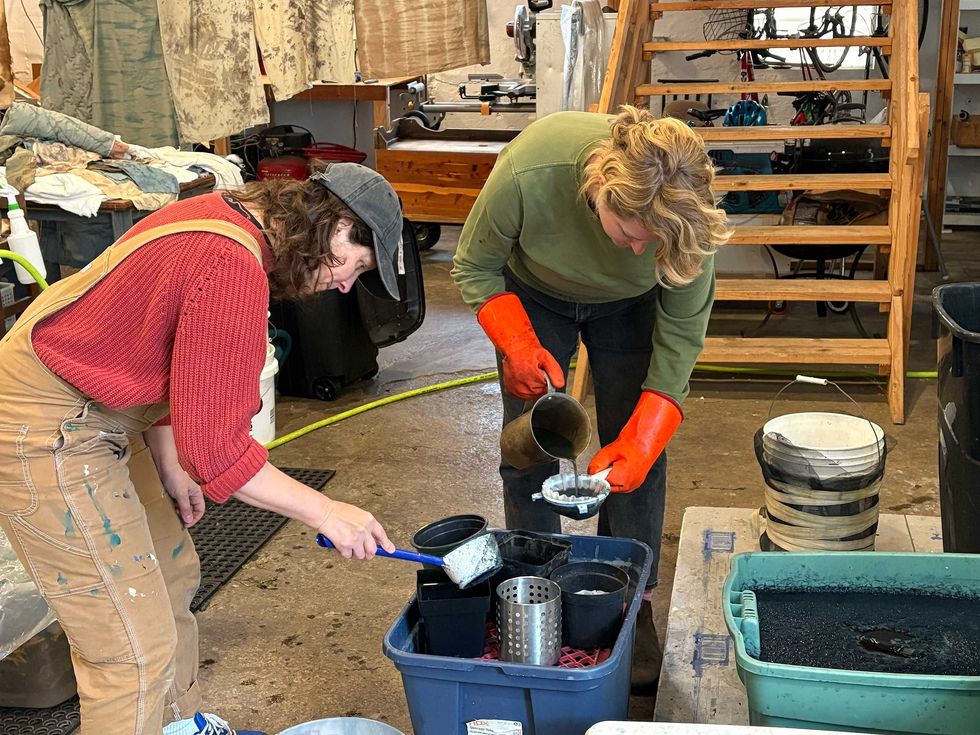
“There are a lot of steps,” Gast noted with a laugh, as vats of aerated indigo bubbled in the corner of the studio. The process is slow and physical, dependent on timing, temperature and a kind of faith in chemistry. The freshly harvested Japanese indigo leaves are first soaked in warm water and left to ferment for several days. The plant matter is then removed, the solution is strained and the pH is raised with the addition of calcium hydroxide, and then the mixture is aerated, poured back and forth between containers until it oxidizes and the pigment turns dark blue. After the indigo settles to the bottom, the resulting paste is filtered, dried and ground into powder. Only then is it ready for dyeing.
But as Stemmermann pointed out, “It’s not a dye. It’s a coating and reaction.” Indigo’s elusive chemistry means each piece is unpredictable, shaped as much by chance as by control. To achieve a deep, saturated blue, “you have to layer it and dip it up to eight times,” she explained.
Each artist uses dye in their work, albeit quite differently, yet all share a deep sensitivity to material and process. “There is a seasonality to textile work,” said Baxter, referring to dye plants.“First, there’s the planting. And then you wait for them to grow, you harvest them, you dye the fabric and then it’s wintertime.” During quilt season when our attention turns inward, the patient, hands-on process becomes a meditation on slowness for Baxter, mirroring the rhythm of the earth and a quiet longing to move with it.
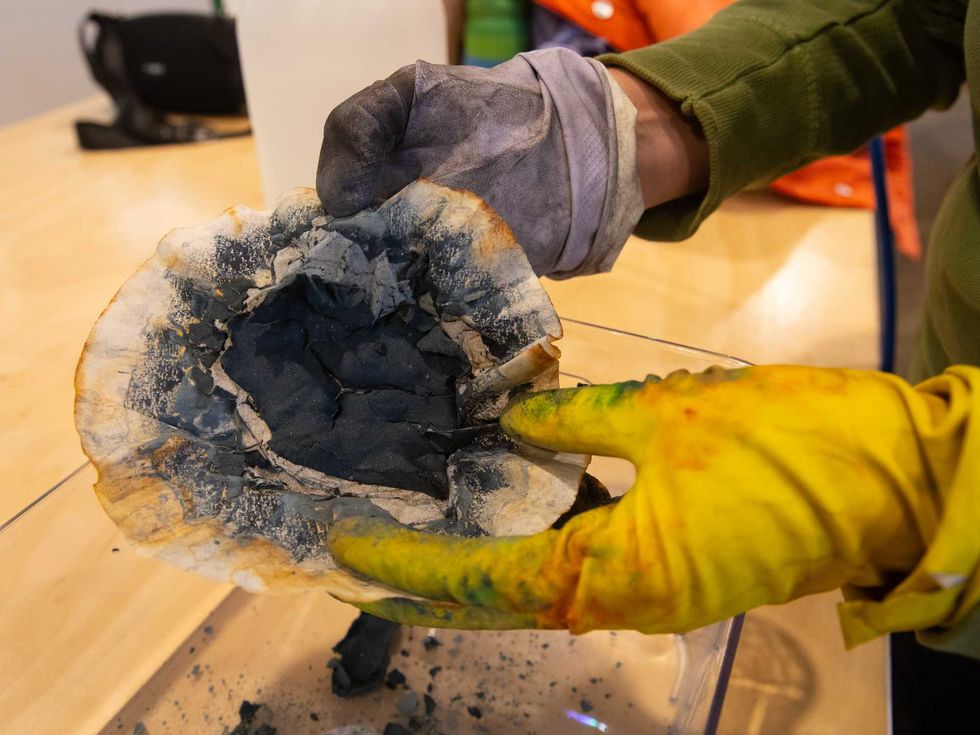
For Gast, working with plant dyes is a way to align artistic practice with ecology and activism. “I’m working on a project that will be showing at Mass MoCA in 2027,” she explained. “It’s a collaborative opera about peatlands for which I’m producing a textile installation that functions as the curtains. I’m using as many natural and regional processes as possible because our work has to do with local-to-global activism and conservation. There is a chemical alchemy in peatlands, which despite covering just 3% of the Earth’s surface, capture more than twice the carbon of all the planet’s forests combined. There’s a direct poetic alignment between plant dye processes and peatlands, which preserved some of the earliest textiles we know of. And the color palette is ancient, both familiar and uncanny.”
There’s a certain chaos in balancing experimentation with intent. For Gast, Baxter, and Stemmermann, this first attempt at pigment extraction has been as much about curiosity as outcome, a communal act of making, rooted in patience, experimentation and discovery.
To find out more about these artists, visit: christygast.com, nataliebaxter.com and janisstemmermann.com
Keep ReadingShow less
loading



